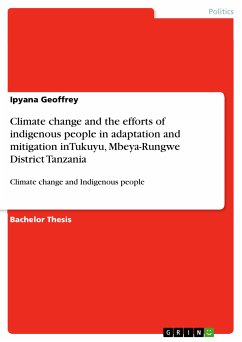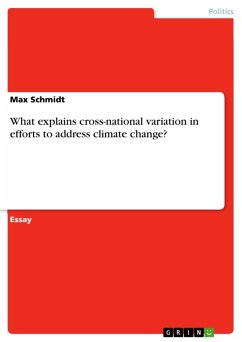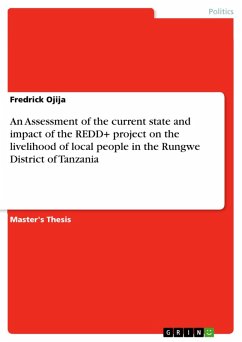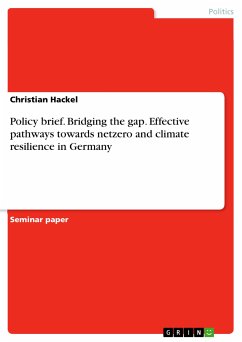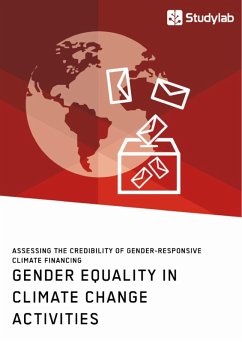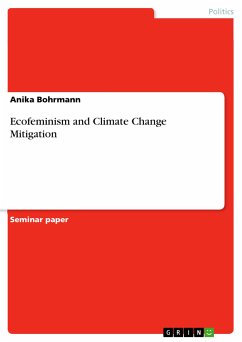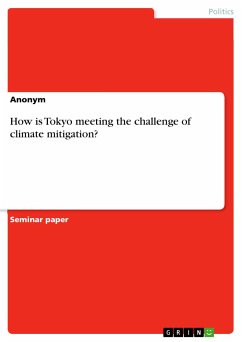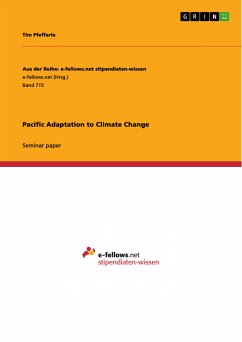Bachelor Thesis from the year 2011 in the subject Politics - Environmental Policy, , course: Bsc. Environment Management - Climate change, language: English, abstract: Normally at the absolute bottom of the social strata, whether in rich or poor countries, are the indigenous or native peoples who are generally the least powerful, most neglected groups in the world. In many countries these indigenous people are repressed by traditional caste systems, discriminatory laws, economics, or prejudice. Unique cultures are disappearing along with biological diversity as natural habitats are destroyed to satisfy industrialised world appetites for resources. According to Nyong and Kanaroglou indigenous people are the more vulnerable to climate change impacts (Nyong and Kanaroglou 1999), thus there is need to consider their culture and their knowledge using to adapt and mitigate effects of climate change since they are cost effective and can easily be implemented. The aim of this research was to identify indigenous and local observations, knowledge and practices related to understanding climate change impacts, adaptation and mitigation in Tukuyu. The study showed that indigenous knowledge and practices used in adaptation and mitigation of climate change include mixed farming and multiple cropping, zero tilling practices in cultivation, contour farming, mulching, adjustments to planting dates, planting trees along water sources and Land buffer zone on sacred forests. The most knowledgeable people were teachers, followed by farmers, then students and business men/women were the least knowledgeable groups. I recommend that there should be community awareness and education through the help of Non Governmental Organisation (NGOs), Community Based Organisations (CBOs) and the government also the government to take more steps forward to promote indigenous and local knowledge used to fight climate change so as to help indigenous people to be less vulnerable to impacts of climate change.
Dieser Download kann aus rechtlichen Gründen nur mit Rechnungsadresse in A, B, BG, CY, CZ, D, DK, EW, E, FIN, F, GR, HR, H, IRL, I, LT, L, LR, M, NL, PL, P, R, S, SLO, SK ausgeliefert werden.

